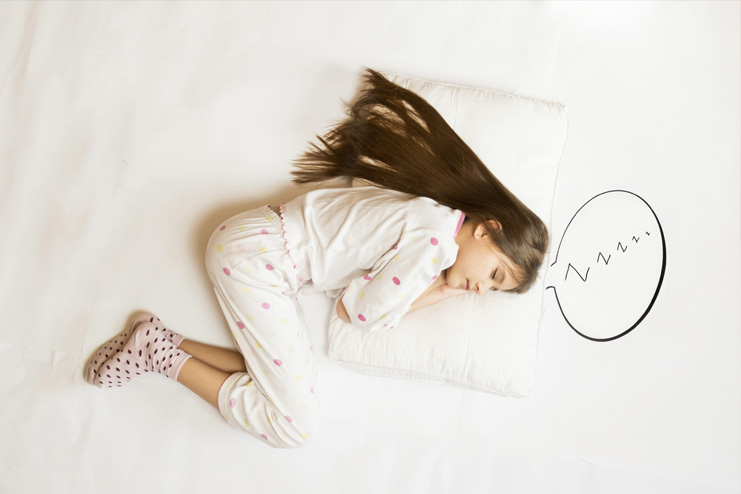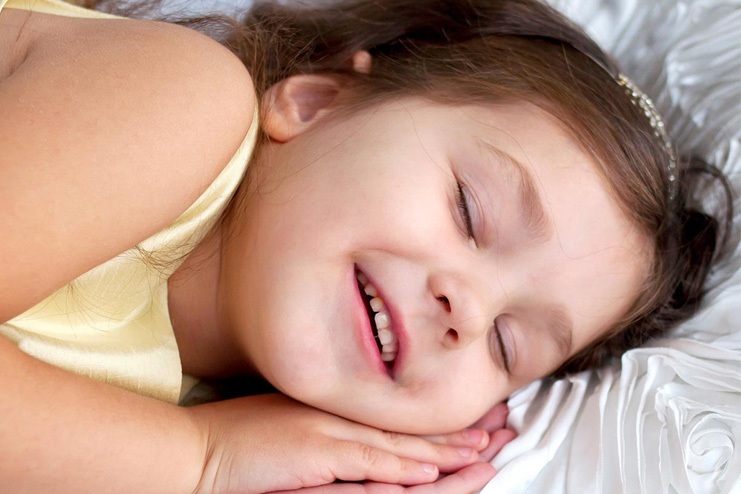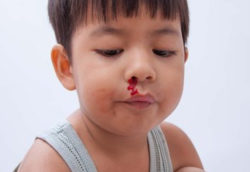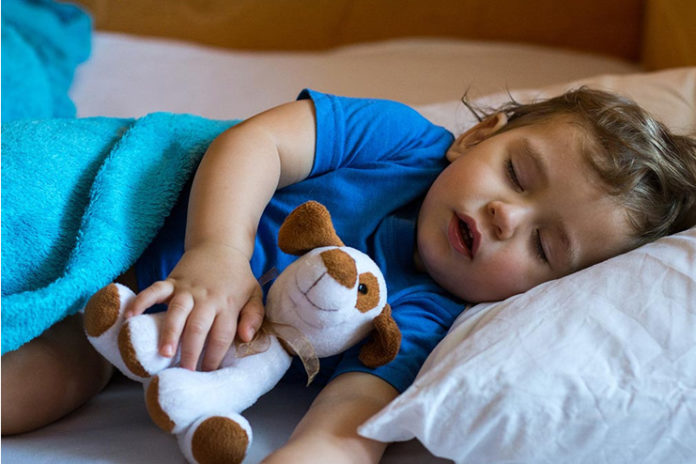Sleep talking is common issue in the adults but, when the kids alarm it may alarm parents. Why do kids talk in their sleep? What does it mean? Is sleep talking dangerous? Know more about sleep talking in this article.
Sleep talking is associated with the unsetting actions or behaviors. It is medically termed as somniloquy. having a good range of idea about sleep talking can definitely help you combat sleep talking in your child.
What is Sleep Talking in Children?

Sleep talking results in the strange behavior and talking while the children is sleeping and they are completely unconscious. Sleep talking is the part of family of sleep utterances which includes mumbling, laughing, growing, and whistling during the sleep. It may happen for all the ages at any part of the sleep. It is more common in children than adults. Sometimes sleep talking takes place along with some involuntary behaviors including sleep walking and teeth grinding.
The ancient Greek philosopher Heraclitus of Ephesus observed someone sleep talking over 2500 years ago so, it is not a recent discovery.
Sleep walking is innocent and harmless and does not require any treatment. Sleep talking which starts to occur after the traumatic experience require immediate medical attention.
When Do Kids Sleep Talk?

Many people talk in their sleep. Sleep talking is more common in the children between the age group of 3-10 years. Some children talk in their sleep occasionally while some others make it a regular sleep routine. It is estimated that 5% of adults keep small chit chatting after they go to sleep. A poll in 2004 showed that 1 in 10 young children sleep talk more than a few nights a week.
Girls are likely to talk in their sleep than boys. Sleeping talking may be carried for the generations.
Children usually sleep talk in the following conditions.
● Children usually sleep talk when they are excited or worried about something during the day.
● Children usually talk a day before the exam.
Causes of Sleep Talking:
Here are a few causes of sleep talking in children:
● stress, depression
● sleep deprivation
● day time sleepiness
● sleep walking
● night terrors or night mares
● fever and any other illness
● sleep disorders such as night mares, confusional arousals, sleep apena, and REM sleep disorder behavior.
● Onset of the sleep talking in the adult stages is associated with the psychiatric disorder or nocturnal seizures.
● Mental or medical illness may be the reasons for the sleep talking for the persons over 25 years of age
● Excitement about the event or any activity may also make your child talk in the sleep.
● Unhealthy sleep cycles
Many children who are diagnosed with the autism spectrum disorder are at the risk of sleep disorders.
Association between the Autism spectrum disorder and sleep:
● Children with autism spectrum disorder have trouble staying in sleep and getting into the sleep soon. These children experience some sleep problems including:
● Irregular sleeping and walking in the sleep
● They usually sleep for time below the expected time for their sleep.
● Getting up and playing or making the noises for one or two hours during the night.
● They experience more sleepiness during the daytime.
Complications of Sleep Talking in Children:
There are no complications of the sleep talking in children. it is an innocent and harmless activity. If the kids talk with loud voices and the sleep talking is frequent, it may disturb others in the room.
Stages and severity of sleep talking:
Sleep talking is usually defined by both stages and the severity. It has the following stages:
Stage 1 and 2: at these stages, the sleep talker may not be in a deep sleep and what they speak can be easily understood by you. The conversation made by the sleep talker at this stage makes sense completely.
Stages 3 and 4: at these stages, the sleep talker goes into the deeper sleep and their words are difficult to understand.
Severity of the sleep talking is measured by the factor that how often it occurs:
Mild: sleep rarely occurs that is once in a month.
Moderate: Sleep talk usually happens once in a week and their talking does not disturb the sleep of others in the same room.
Severe: Sleep talking may take place every night and may interfere with the sleep of others.
Who is at the risk of sleep talking?
irrespective of the gender and age, sleep talking may happen to anyone. It is more frequent in the children and men. There is an association between the genetics and sleep talking. A kid with the family history of sleep talking is also at the risk of sleep talking.
How to deal with the sleep talking in kids?
Sleep talking does not harm your child but it may annoy others who share the room with your child. Certain tips will help you to reduce the sleep talking symptoms in your child:
1. Regular sleep schedule:
Keep your kid’s room dark and away from the noises. Ensure that your child do not have the longer naps during the day time. Make your child to go to the bed same time every day. Reduce the screen time and any other stimulative activities before the bed time.
Set a scheduled awakening in the morning. Studies show that school aged kids need 9 to 11 hours of the sleep and the preschoolers require 11 to 13 hours of sleep.
2. Create a hygiene environment:
For your kid to have the distortionless sleep, environment plays a prominent role. Keep your child’s room at the comfortable temperature and avoid placing the bright lamps near their head.
3. Take care of your child’s diet:
Fatty, spicy, or carbonated drinks before the bed time may lead to the indigestion and may disturb your child’s sleep.
Here are a few foods to offer your child before the bedtime:
● Offer your child protein or fiber rich foods. Offer your kids snacks like nuts, peanut butter, Greek yogurt, hummus, eggs, beans, tofu, berries, and whole berries.
● Cut out the caffeine compounds including coffee and chocolate before the bedtime.
● A glass of milk before the bedtime might help your child to have a good sleep
4. Unplug the screens before bedtime:
Children and adults are vulnerable to the disruptions caused by the screens. Blue light emitting from the screens will have negative impact on the still developing eyes and brain of the child. This light is likely to drop the levels of the sleep hormone melatonin. This drop results in the delayed bedtime, fewer hours of sleep, and poor-quality sleep.
Ensure any game play few hours before the bedtime.
5. Make bedtime special:
This is one of the best ways to stop sleep talking in child. When children feel loved, they tend to get relief from the stress. Read a story to your child before the bed time. Talk to your little one and make them laugh.
6. Keep track on their academics:
Stress and anxiety in the school is one of the primary reasons for the sleep talking in the children. Don’t pressure your child for the grades. Spend time with your child every day and help them do their homework. Home work is the best way for the parents to analyze the performance of their kids.
7. Boost the confidence of your child:
Lack of confidence is one of the reasons for the anxiety in children which in term deprives their sleep. Make attempts to boost the confidence of your child. Assure your child that you are there to support them always and teach them self-resilience and equip them with the problem-solving skills.
8. Support when they are worry:
Little incidents may worry your child sometimes including low grades, the moments that you scold them. Emotional support by their parents can help to heal their worries and go back to sleep. Limit the incidents that may worry them and adopt open communication for the well-being of your child.
9. Make your child exercise regularly:
Studies suggest that there is a wide relationship between sleep and exercise. Exercise can contribute to sound sleep. Physical activity helps your child to increase the time to be spent in deep sleep. It helps to control the stress and anxiety and increases the amounts of sleep. Exercise boosts the immune function, and supports the cardiac health.
10. Don’t try to wake your child:
Don’t try to wake the sleep talking child from the sleep. Your child may be able to follow the instructions in this state and gently guide them to go back to the sleep. Though it may not be hazardous it may put your child in difficult to go back to sleep.
11. Offer supportive touch for your child:
Some of the terrible dreams may make your child talk in the sleep. At that times offer emotional support to your child with your words or rubbing their back. These movements can offer them emotional support.
12. Fill their mind with positivity:
Daytime habits may contribute to children’s sleep problems. Change the thinking style and the way that they react over different kinds of situations. Adopt the peaceful thinking and positive mindset that help your child have pleasant and calm sleep. Prevent your child from thinking in a negative manner.
13. Train their mind before sleeping:
Develop child’s mind and mould their personality towards the good things. One of the successful rules of the good parenting is to overcome the abnormal behavior and help them to have the overall growth and development.
When to see a doctor for sleep talking in children?
There is no specific treatment for the sleep talking. A sleep expert can help to manage the condition. Though sleep talking is harmless, it is required to consult the doctor in the following conditions.
● If the child has frequent episodes of sleep talk with the loud voice.
● If the sleep talking is accompanied by stress, anxiety or depression in the school aged children. You may notice the low grades in the academics.
In conclusion, sleep talking is not harmful and it may bother the family when it is severe. Ensure to keep your child at the regular sleep schedules and reduce the stress levels that may ultimately yield the good results.







































